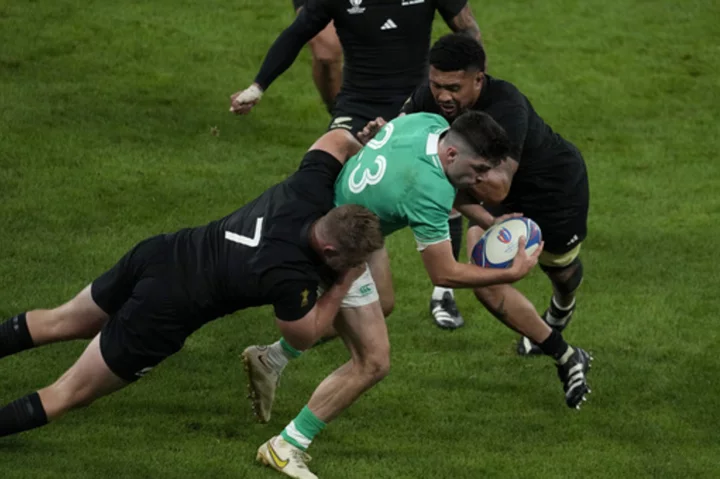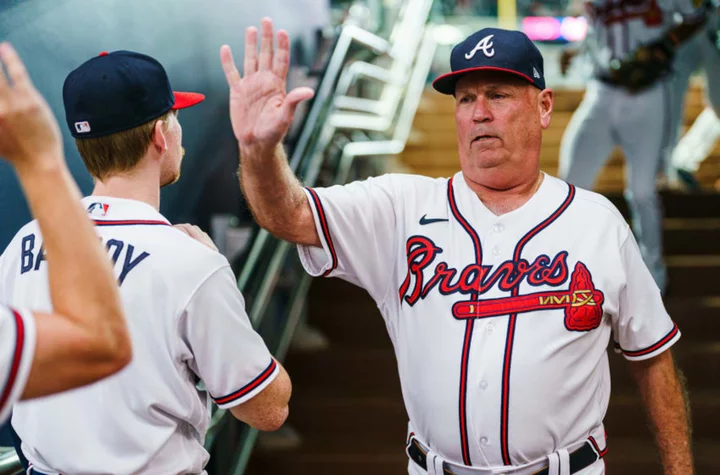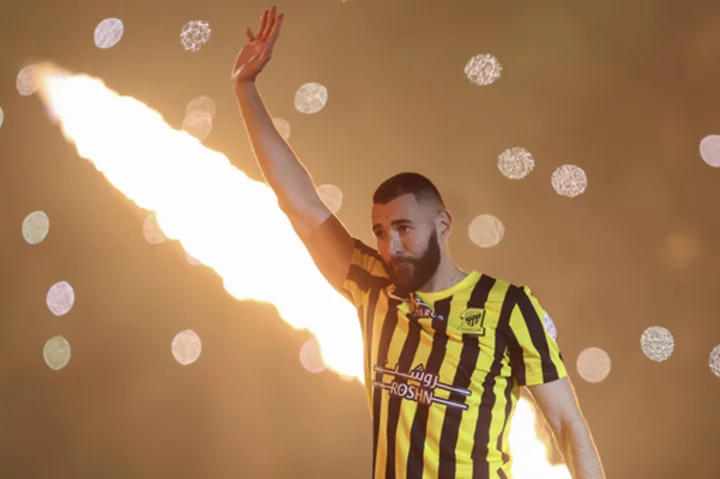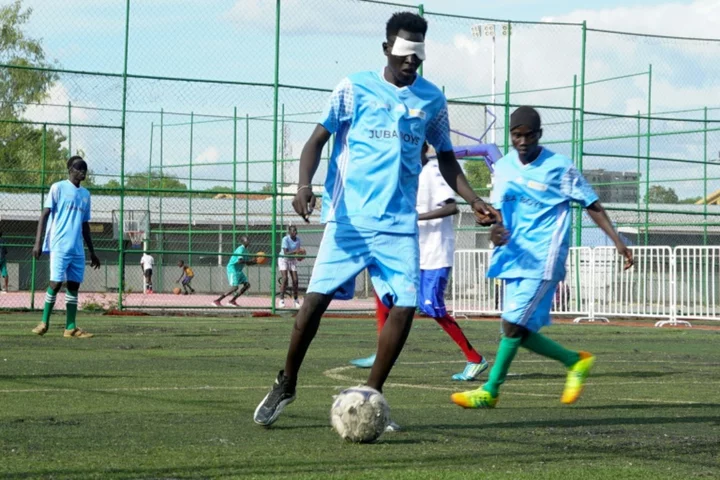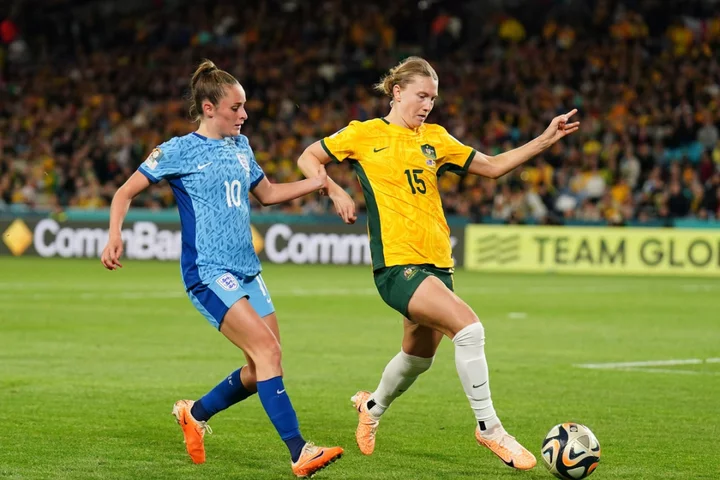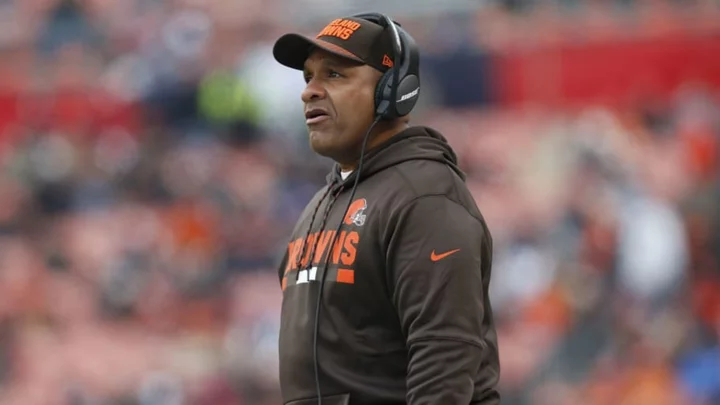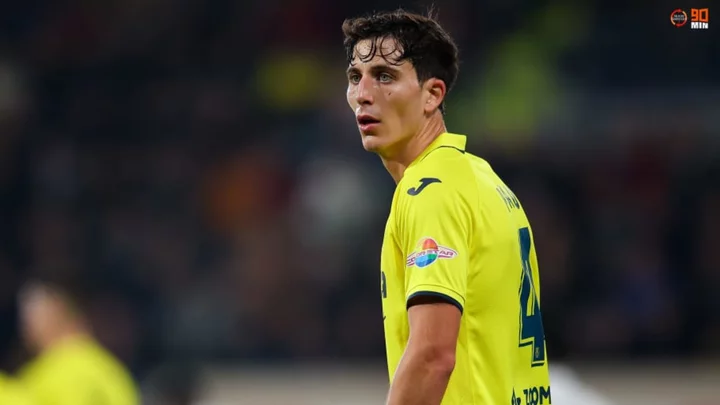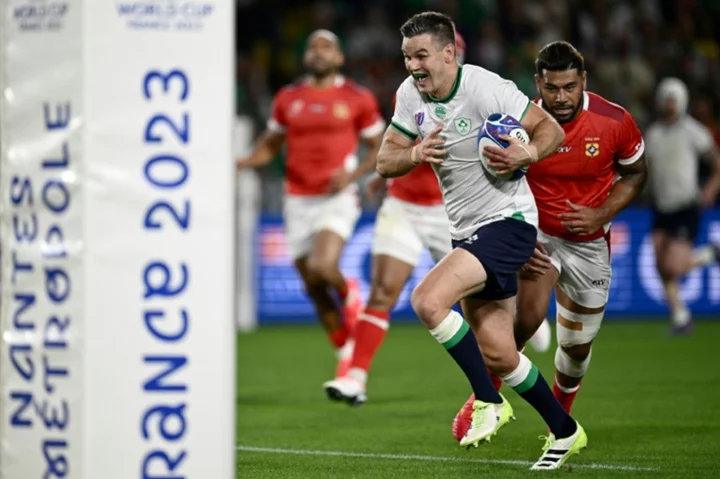PARIS (AP) — After Ireland flew south and ransacked New Zealand last year for a monumental series win, the All Blacks pored over video to find out what went wrong.
Coach Ian Foster, in danger of losing his job, complained of their “fidgety defense” after New Zealand's first series defeat at home in the professional era.
“The learnings,” as scrumhalf Aaron Smith put them, were used to stop Ireland for the first time since that tour in their Rugby World Cup quarterfinal on Saturday at Stade de France.
New Zealand stunned by winning 28-24. From the first points off Richie Mo'unga’s boot in the eighth minute, the All Blacks never trailed. They capped the contest by repelling a 37-phase, five-minute layered attack by Ireland.
Defense coach Scott McLeod was bursting with pride.
“After the series loss at home last year which really hurt, we had to have a really good look at some fundamentals in the defensive game for the All Blacks, and a big part of that was in Super Rugby in New Zealand they tend to defend the man," McLeod said on Sunday. ”So, they line up on a man and they defend the man. That doesn't work against Ireland, it doesn't work against Italy, it doesn't work against France and we knew we had those teams in this World Cup.
"So, we had to develop our ability to be able to defend the ball. Wherever the ball is we had to put people in front of that.
“That was the most pleasing aspect, that we've built the players' skillset from last year. That loss against Ireland and then the end-of-year tour we learned some really harsh lessons. Last night, the majority of the time we got that right, and we had to get that right against Ireland and the way they attack."
The All Blacks put out their best 23 players for the first time in the tournament and gave Ireland a different look strategy-wise to what they showed in the four pool games.
They looked after the ball and allowed few turnovers, kicked a lot more, slowed down their ruck ball to let their attack reset, and played close to rucks. Ball in play was easily the highest of the tournament at a sapping 38 minutes, 46 seconds, as they relentlessly probed each other for gaps.
New Zealand had to make the second most tackles — 229 made, 31 missed — in the tournament after Wales' effort against Fiji.
“We had to make (260) tackles last night and 100 of those were in the last quarter, and particularly in that last 37 phases,” McLeod said. "The most we've had to make in this tournament, or attempt to make, was (158) against Italy.
"There's a huge amount of Kiwi ticker (courage) to get the job done. I am really proud of our execution in that zone but also our decision-making. The ball wasn't there to take a number of times and we had to wait for the moment and then execute really well. Sam Whitelock put himself in the position twice to do that and so did Ardie (Savea).
“We finally got it after that 37th phase and the boys are really happy with that.”
New Zealand returns to Stade de France on Friday to face Argentina in the semifinals. It doesn't want a repeat of 2019 when Ireland was crushed in the quarterfinals but New Zealand was overpowered by England in the semifinals.
“Last week our detail and our energy and our focus was top class and it gave the players confidence to go out and execute that,” McLeod said. "2019 we didn't do that as well in our week leading into England. It's not necessarily the opposition, it's just the quality of what we put into the week. Our captain Kieran Read couldn't train and there were disruptions.
“We have to make sure that we don't have those disruptions and we build the week with the quality and the focus that we did last week.”
___
AP Rugby World Cup: https://apnews.com/hub/rugby

